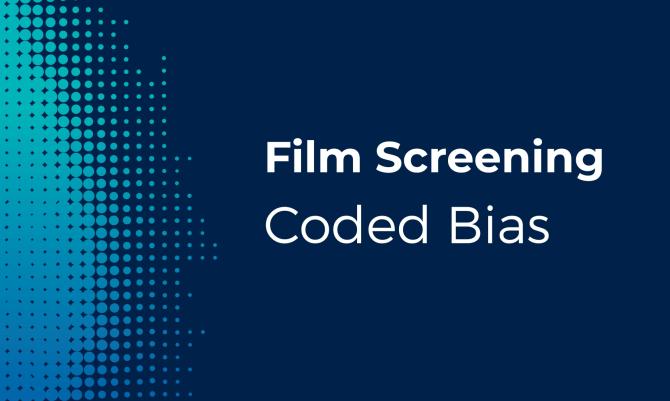
The Accelerator Fellowship Programme of the Institute for Ethics in AI, University of Oxford is proud to invite you to an exclusive screening of the critically acclaimed documentary Coded Bias by Dr Joy Buolamwini, fellow of the Accelerator Fellowship Programme.
This powerful film, directed by Emmy-nominated filmmaker Shalini Kantayya, ran globally on Netflix until April 2025. It is now available only through curated screenings, making this event a rare opportunity to experience it on the big screen alongside a global community of technologists, researchers, organizers, and justice advocates.
This screening is hosted as part of Dr Joy Buolamwini’s work as an Inaugural Fellow of the Accelerator Fellowship Programme. It marks a key stop on the 5th Anniversary World Tour of the film and invites participants to reflect on the urgent intersections of AI, ethics, bias, and power.
This event is a unique opportunity to engage with global experts on algorithmic accountability and explore how we can collectively build more inclusive and ethical technologies.
The film screening will be followed by a Q&A and panel discussion, moderated by Financial Times AI Correspondent Melissa Heikkilä. The Q&A and panel discussion will examine ways of creating more equitable and accountable AI systems. Dr Joy Buolamwini and Dr Caroline Green, Lead of the Accelerator Fellowship Programme and Director of Research at the Institute for Ethics in AI are two of the panellists who will be answering your questions during this event.
The evening will end with a book signing of Dr Joy's book Unmasking AI and a reception.
Date and time:
Saturday, 12 July, 16:30 to 20:00
Location:
McCall MacBain Hall
Rhodes House, South Parks Rd,
Oxford OX1 3RG, United Kingdom
Agenda
- 16:30 – Doors open to attendees
- 17:00 – Coded Bias screening begins
- 18:00 – Panel discussion and Q&A
- 19:00 – Reception and book signing
- 20:00 – Event ends
Spaces are limited, so we encourage you to book your place as soon as possible. We look forward to seeing you on 12 July!

Dr Joy Buolamwini, founder of the Algorithmic Justice League.
Dr Buolamwini is a Fellow of our Accelerator Fellowship Programme, focusing on bias in AI Systems during her time on the programme. She is founder of the Algorithmic Justice League, stands at the vanguard of AI ethics as a pioneering MIT researcher and multidisciplinary artist. She is the author of the National Bestseller Unmasking AI: My Mission to Protect What Is Human in a World of Machines and advises world leaders on preventing AI harms. Her landmark “Gender Shades” research galvanised the field of algorithmic auditing, ranking among the most influential AI bias studies ever published. This consequential research compelled three tech giants to halt sales of facial recognition technologies (FRTs) to law enforcement and sparked worldwide discourse on ethical AI implementation.
Known as the "Poet of Code," Doctor Buolamwini's artistic practice spans four continents, illuminating AI's societal impact through art exhibitions and poetic performance. Her doctoral dissertation conceptualized the "evocative audit" theory behind works like “AI, Ain’t I A Woman?”—a powerful spoken word poem and visual AI audit exposing how household tech platforms misclassify prominent women including Oprah Winfrey, Serena Williams, and Michelle Obama. As a public intellectual, her TED talk on algorithmic bias has been viewed over 1.8 million times. The Emmy-nominated documentary Coded Bias, chronicling her evolution from graduate researcher to algorithmic justice advocate, was available to over 100 million Netflix viewers worldwide.
A Rhodes Scholar and Fulbright Fellow, Doctor Buolamwini received the Technological Innovation Award from the Martin Luther King Jr. Center. Fortune Magazine names her the "conscience of the AI revolution," while Time magazine placed her on their inaugural list of the 100 most influential figures in artificial intelligence. After earning her doctorate from MIT, she received honorary degrees from both Knox College and Dartmouth. In 2024, her contributions were recognised with the NAACP-Civil Digital Rights Award, presented by Prince Harry and the Duchess of Sussex.
